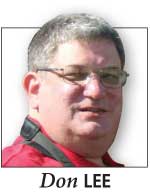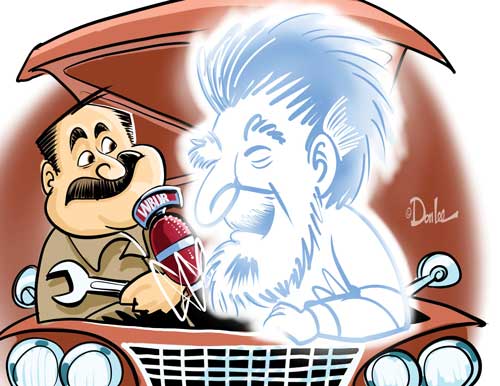I came late to the “Car Talk” party, but found a parking space pretty quickly.
 Sometime in 1997 I was driving on I-71 from Columbus to Cincinnati and looking for something on the radio. Out from the static came two wry and raucous voices talking about the kind of person who’d own a Volvo. Specifically, a rusty, orange Volvo wagon.
Sometime in 1997 I was driving on I-71 from Columbus to Cincinnati and looking for something on the radio. Out from the static came two wry and raucous voices talking about the kind of person who’d own a Volvo. Specifically, a rusty, orange Volvo wagon.
I got interested, because a good friend took perverse pride in his wagon, a decade-old beater whose rust, a product of years of “Provincetown year-rounder” salt air, perfectly matched (and probably held together) what little orange paint was left.
“And this guy,” the voice on my Geo Prizm’s radio cracked, “will be wearing one of those — haw haw — Russian fur hats because — haw haw — THE HEATER DON’T WORK.”
That’s all I heard because I had to pull over, I was laughing so hard. George — that’s my rusty-Volvo-driving friend, who last time I saw him was driving a Jeep he customized himself — had one of those hats and wore it at the slightest excuse.
And just like that, Tom Magliozzi and his brother Ray got my attention and held it by translating a technical subject to human — and humorous — terms.
Tom was the “Click” of “Click and Clack, the Tappet Brothers,” hosts of “Car Talk” on NPR, and everybody’s go-to gurus for advice on cars and the lives we live around them.
Even the rapid-fire banjo strumming that was the opening theme of “Car Talk” took me back in time, to summer childhood nights spent listening to the distant roar of motors from the Toledo Speedway coming through the woods behind the house on Hoffman Road (it was a nice neighborhood once). I’m not sure why that particular connection is there — did TV commercials form the Speedway back then use similar music? — but it’s there.
That was the secret, I think, of the success of the show that reinvented the image of public radio.
The image of two regular guys talking about cars, car repair and whatever else was on their mind that week both hid and augmented a couple of sharp and agile minds. It was easy to forget that Tom in particular was entitled to a string of letters after his name sufficient to bend a business card; he’d both taken and taught graduate-level courses, and both he and Ray were graduates of MIT.
If it’s true, as the old saying goes, that a well-stocked mind is never bored, then Tom and Ray were never, ever going to be bored. And neither would their listeners.
That’s why the news that Tom had died of complications of Alzheimer’s disease was especially sobering. It’s heartbreaking enough to see anyone’s mind slip away like that, but when an instrument so finely tuned starts to play false, it’s doubly unsettling.
Though Tom and Ray loved to talk cars on “Car Talk” and solve listeners’ car problems, they didn’t exactly obsess over them.
One call got no farther than, “I have an old Ford Fiesta,” before Tom and Ray were guffawing and shouting, “Sell it!” before offering advice that would get the little car and its owner through another day.
Cars are great, was the message, but they’re just cars. What’s more important? Just about everything else.
Here’s what Tom had to say about the subject: “Some guy I met said it’s amazing how we use cars on our show as an excuse to discuss everything in the world — energy, psychology, behavior, love, money, economics and finance. The cars themselves are boring as hell.” (He also said, “Kids, get away from the cellphones, get away from the computers and mail someone a fish before it’s too late.” So there’s that, too.)
There’s more like that from Tom over at cartalk.com, and now that you’ve wasted a perfectly good couple of minutes reading this, head on over there for more.
And though Ray might caution you, “Don’t drive like my brother,” it might not hurt to look at life the way he did.
Cartoonist Don Lee can be reached at donlee@donleecartoons.com or on Twitter at @DonLeeCartoons.























